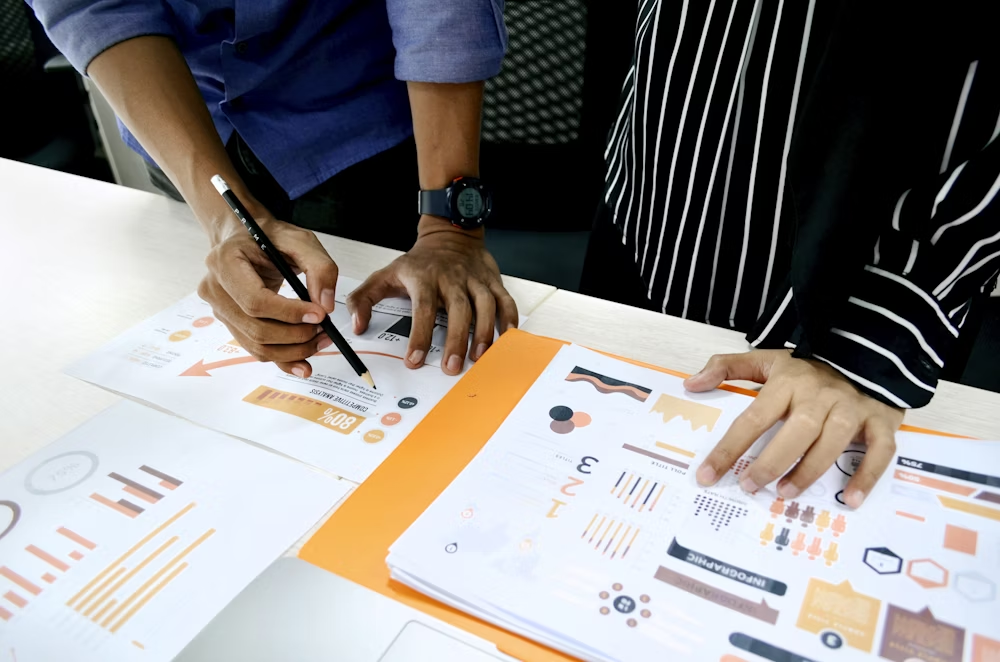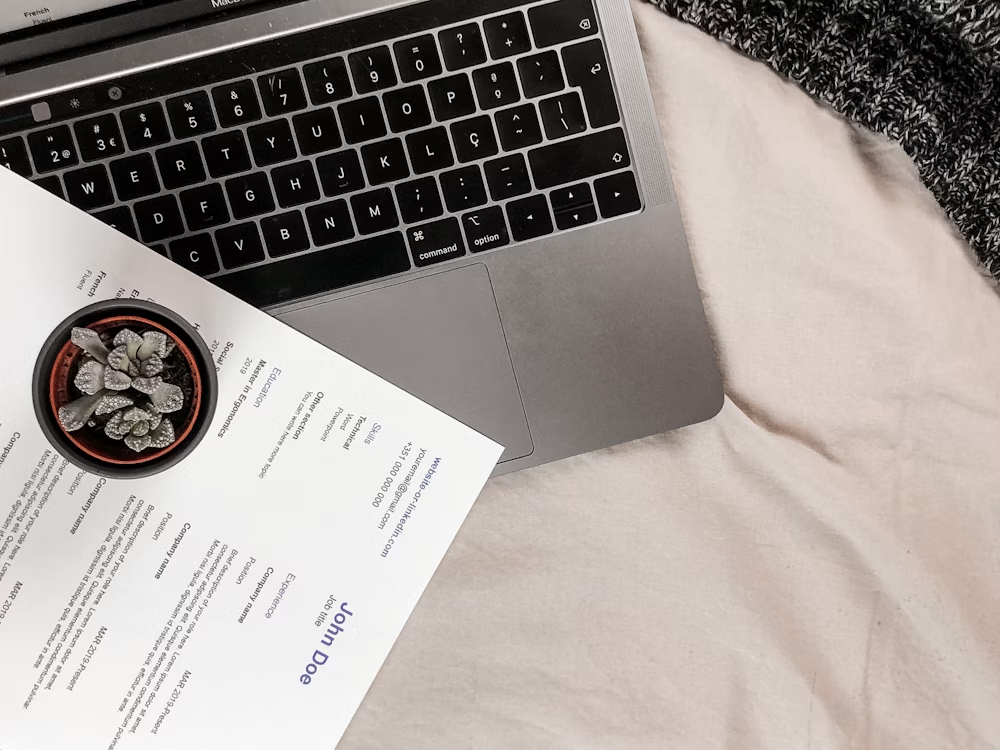Mastering Research Skills | Guide, Types & Tips
- Introduction
- What makes research skills important?
- How are research skills different from research methods?
- What skills should a good researcher possess?
- How do I improve research skills?
Introduction
Research skills are fundamental for anyone aiming to produce rigorous and impacting findings. Whether you are a student, academic, or professional, having strong research skills can enhance your ability to gather, analyze, and interpret information effectively. This article will provide an overview of why research skills matter, what the skills of a good researcher might include, and practical tips for improving your research abilities. When you develop good research skills, you can ensure your work is thorough, accurate, and impactful.

What makes research skills important?
Academic careers require research skills that are essential for producing high-quality, credible work in various fields. Not only do these skills look good on a resume, research projects benefit from researchers who can gather, assess, and interpret information effectively, leading to well-informed decisions and solutions.
These skills enhance critical thinking by encouraging the evaluation of sources, identification of implicit assumptions, and examination of evidence. This analytical approach ensures that conclusions are based on sound reasoning and quality data. Strong research skills provide a solid foundation for making informed decisions. Whether in academia, business, or everyday life, the ability to find and use reliable information is necessary for selecting the best course of action.
Research skills are integral to effective problem-solving. By identifying relevant information and analyzing it thoroughly, researchers can develop innovative solutions to complex issues. This process often involves recognizing patterns, verifying propositions, and refining approaches based on findings.
Good research skills contribute to clear and persuasive communication. When presenting findings, it's essential to convey information accurately and convincingly. Researchers must be able to explain their methods, justify their conclusions, and address potential counterarguments.
The ability to conduct research fosters a habit of lifelong learning. As new information becomes available, those with strong research skills can stay updated and adapt their knowledge and practices accordingly. This adaptability is valuable in a rapidly changing world.
High-quality research builds credibility and trustworthiness. Whether in academic work, professional reports, or public presentations, well-researched information demonstrates a commitment to accuracy and thoroughness. This credibility can enhance one's reputation and influence.
Research skills also involve understanding and adhering to ethical guidelines. Ethical research practices ensure that the information gathered and presented respects the rights and dignity of participants and sources. This ethical awareness helps maintain integrity and trust in the research process.

How are research skills different from research methods?
Research skills and research methods are distinct yet interconnected concepts that play a role in any research project. Understanding the difference between them is essential for conducting effective research.
Research skills refer to the abilities and competencies that a researcher must develop to carry out research effectively. These skills include critical thinking, information literacy, data analysis, and effective communication. Critical thinking allows researchers to evaluate sources, identify underlying assumptions, and draw logical conclusions. Information literacy involves finding and using credible sources, while data analysis encompasses the ability to interpret data accurately. Effective communication ensures that research findings are presented clearly and persuasively.
On the other hand, research methods are the systematic approaches and techniques used to collect and analyze data. These methods provide a structured framework for conducting research and can vary depending on the discipline and research question. Common data collection methods include surveys, experiments, interviews, observations, and case studies. Each method has its own set of procedures and tools designed to gather specific types of data. For example, surveys are often used to collect quantitative data from a large group of respondents, while interviews provide in-depth qualitative insights from individuals.
While research skills are the foundational abilities that enable researchers to carry out their work, research methods are the specific procedures they use to gather and analyze data. In other words, research skills are the "how" of the research process, while research methods are the "what" and "how-to." A researcher needs strong research skills to choose and apply the appropriate research methods effectively. For instance, critical thinking helps in selecting the most suitable method for a given research question, and data analysis skills are essential for interpreting the results obtained from that method.
The relationship between specific research skills and research methods is symbiotic. Strong research skills enhance the effective application of research methods, while familiarity with various research methods can, in turn, strengthen a researcher's skills. For example, understanding the intricacies of different data collection techniques can improve a researcher's ability to design robust studies and analyze results accurately.
What skills should a good researcher possess?
A good qualitative researcher needs a specific set of important research skills to conduct thorough and credible studies. Beyond research, companies try to identify recruits with key graduate career skills related to research that might be useful in professional settings. These skills help in collecting, analyzing, and interpreting data effectively. Essential research skills might include time management skills, understanding of report writing in academic research, and a variety of soft skills to ensure successful research endeavors. Among others, critical thinking, analytical skills, communication skills, ethical awareness, organizational skills, and flexibility are essential for producing high-quality research. Below, we will explore each of these skills in detail.
Critical thinking
Critical thinking is the foundation of effective research. It involves the ability to evaluate sources, question assumptions, and rigorously analyze information. For a qualitative researcher, critical analysis means scrutinizing data to identify patterns, inconsistencies, and underlying meanings. This skill ensures that conclusions are based on robust evidence rather than personal preferences or superficial observations. Researchers with strong critical thinking skills can distinguish between credible sources and unreliable ones, which is important for maintaining the integrity of their work. By applying critical thinking, researchers can develop well-reasoned arguments and make informed decisions throughout the research process.
Analytical skills
Analytical skills are key for interpreting complex data and extracting meaningful insights. Qualitative research often involves large amounts of unstructured data, such as interview transcripts, field notes, and observational records. Researchers need to break down this data into manageable parts, identify themes, and draw connections between different pieces of information. Strong analytical skills enable researchers to process this data methodically and identify significant trends and patterns. This skill also involves being able to compare and contrast findings from various sources, which helps in building a comprehensive understanding of the research topic. Analytical skills ensure that the research findings are coherent and logically structured, providing a clear narrative that supports the research objectives.
Communication skills
Effective communication is beneficial for qualitative researchers, both in gathering data and presenting findings. During the data collection phase, researchers must ask clear, open-ended questions and listen actively to participants' responses. This requires excellent verbal communication skills and the ability to build rapport with participants, making them feel comfortable sharing their experiences and perspectives. Additionally, researchers need strong written communication skills to systematically document their findings and present them in a clear and engaging manner. This includes writing detailed field notes, transcribing interviews, and crafting comprehensive reports. Good communication skills ensure that the research is accessible to a wide audience and that the findings are conveyed in a compelling and understandable way.
Ethical awareness
Ethical awareness is a cornerstone of qualitative research. Researchers must understand and adhere to ethical guidelines to ensure the rights, privacy, and well-being of their participants. This includes obtaining informed consent, ensuring confidentiality, and being transparent about the research process. Ethical awareness also involves recognizing and addressing any potential power imbalances between the researcher and participants. By maintaining high ethical standards, researchers protect the integrity of their study and the trust of their participants. This respect for ethical considerations helps to produce research that is both credible and respectful of the individuals and communities involved.
Organizational skills
Organizational skills are essential for managing the numerous tasks and details involved in qualitative research. Researchers must keep track of various data sources, manage time effectively, and ensure that all aspects of the research process are conducted systematically. Good organizational skills help researchers maintain accurate records, schedule interviews, and manage data collection and analysis efficiently. This skill also involves being meticulous in documenting procedures and maintaining a clear audit trail, which is key for ensuring the transparency of the research. Strong organizational skills enable researchers to stay focused and productive, ultimately leading to more coherent and comprehensive research outcomes.
Flexibility and adaptability
Flexibility and adaptability are critical qualities for qualitative researchers, who often work in dynamic and unpredictable environments. Research plans may need to be adjusted based on participants' availability, unexpected findings, or changing circumstances. Researchers must be able to adapt their methods and approaches in response to these challenges while still maintaining the overall objectives of their study. Flexibility also involves being open to new ideas and willing to modify propositions or research questions as new insights emerge. This adaptability allows researchers to navigate the complexities of qualitative research effectively and ensures that their work remains relevant and responsive to the data collected. By being flexible and adaptable, researchers can handle the unexpected and make the most of the opportunities that arise during the research process.

How do I improve research skills?
Improving research skills is an ongoing process that involves practice, reflection, and learning from various experiences. Developing these skills can enhance your ability to conduct thorough and rigorous research. Here are three key strategies to help you improve your research skills.
Seek feedback and mentorship
One of the most effective ways to improve research skills is to seek feedback and mentorship from experienced researchers. Constructive feedback can help you identify areas for improvement and refine your techniques.
Mentors can provide valuable insights, share their experiences, and guide you through the complexities of the research process. By engaging with mentors and colleagues, you can gain new perspectives and enhance your skills through collaborative learning.
Engage in continuous learning
Continuous learning is essential for keeping your research skills sharp and up-to-date. This involves staying informed about the latest developments in your field, attending workshops and conferences, and reading relevant literature.
Enrolling in courses or training programs can also provide structured learning opportunities to build specific skills, such as skills related to data analysis or qualitative research methods. By committing to lifelong learning, you can continuously expand your knowledge and improve your research capabilities.
Practice and reflect
Regular practice and reflection help to hone research skills. Engage in research activities frequently, whether through formal projects, academic assignments, or personal investigations. Each research experience offers an opportunity to apply your skills and learn from the process.
Reflect on your work by reviewing what went well and identifying areas for improvement. Keeping a research journal can help document your experiences, track your progress, and guide your future efforts. Through consistent practice and thoughtful reflection, you can steadily enhance your research proficiency.




